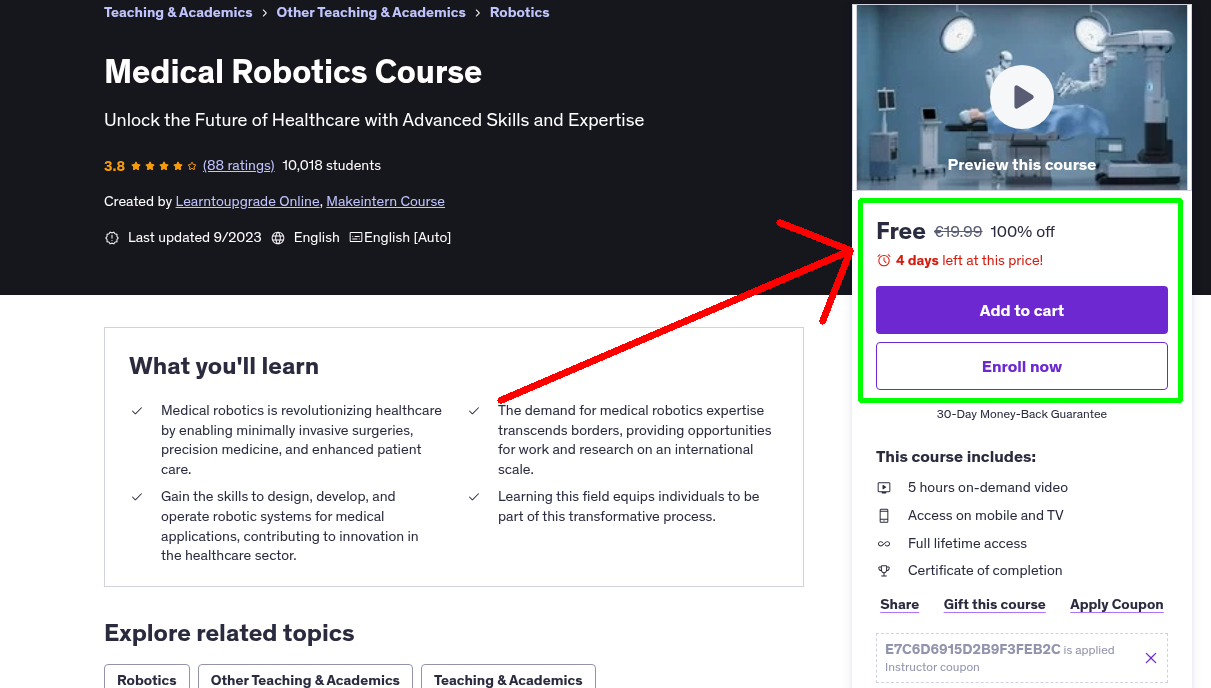
What You'll Learn
- Medical robotics is revolutionizing healthcare by enabling minimally invasive surgeries, precision medicine, and enhanced patient care.
- The demand for medical robotics expertise transcends borders, providing opportunities for work and research on an international scale.
- Gain the skills to design, develop, and operate robotic systems for medical applications, contributing to innovation in the healthcare sector.
- Learning this field equips individuals to be part of this transformative process.
Requirements
- To pursue a Medical Robotics Course, you typically need: Educational Background: A bachelor's degree in a relevant field (engineering, computer science, medicine, etc.). Prerequisite Knowledge: Some courses may require a foundation in robotics, programming, or biology. GRE Scores: For international students applying to universities abroad. English Language Proficiency: Proof of English language proficiency (TOEFL/IELTS) for non-native speakers. Letters of Recommendation: Usually two to three letters from professors or professionals in the field. Statement of Purpose: A compelling essay outlining your motivations and goals. Interview: Some institutions may require an interview as part of the admission process.
Who This Course is For
- Students and Enthusiasts: With a passion for technology and a desire to make a difference in healthcare.
- Computer Scientists: Interested in the development of robotic systems.
- Mechanical and Electrical Engineers: Interested in specializing in medical applications.
- Medical Professionals: Doctors and nurses interested in leveraging technology for better patient care.
- Biomedical Engineers: Seeking to apply engineering principles to healthcare.
Your Instructor
Learntoupgrade Online
Training Provider
4.1 Instructor Rating
6,725 Reviews
140,419 Students
60 Courses
Never Miss a Coupon!
Subscribe to our newsletter to get daily updates on the latest free courses.



